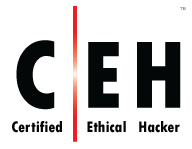Ethical Hacking Labs and Certifications: Your Guide to Becoming a Professional Ethical Hacker
Introduction
The digital world is under constant threat from cybercriminals. This has created a massive demand for ethical hackers—professionals trained to think like attackers but act as defenders. If you dream of becoming one, then labs and certifications are your foundation. Labs give you the practical skills, while certifications give you the credibility to stand out in your career.
The Importance of Ethical Hacking Labs
Reading about hacking is not enough—you need to practice. Ethical hacking labs simulate real-world cyberattacks so you can test vulnerabilities, exploit weaknesses, and secure systems. These labs provide a safe environment to learn without breaking the law.
There are different types of labs:
- Online Labs – hosted on platforms, accessible anywhere.
- Virtual Labs – set up on your computer using virtual machines.
- Physical Labs – on-site labs with dedicated hardware.
Skills You Learn in Ethical Hacking Labs
When you spend time in hacking labs, you develop essential skills like:
- Penetration Testing – simulating attacks to find system flaws.
- Web Application Hacking – testing websites for vulnerabilities.
- Network Security – analyzing firewalls, routers, and switches.
- Wireless Hacking – cracking Wi-Fi security and encryption.
- Cryptography – learning how encryption works and how it can be broken.
Popular Ethical Hacking Certifications
There are many certifications that validate your skills:
- CEH (Certified Ethical Hacker) – industry-standard credential.
- OSCP (Offensive Security Certified Professional) – highly respected practical exam.
- CompTIA Security+ & PenTest+ – great entry-level choices.
- CISSP / CISM – for advanced leadership roles.
CEH Certification: The Global Standard

The Certified Ethical Hacker (CEH) is the most recognized certification in cybersecurity. It covers:
- Footprinting & Reconnaissance
- Scanning Networks
- System Hacking
- Web Application Security
- Malware & Cloud Security
With CEH, you can become a penetration tester, security analyst, or consultant with global opportunities.
OSCP Certification: The Practical Choice
The OSCP is known as the most hands-on hacking certification. Unlike CEH, it requires you to hack into real machines in an exam. It’s perfect for professionals who want deep penetration testing expertise.
Why Certifications Are Important in Cybersecurity
In cybersecurity, trust is everything. Certifications show employers you are qualified, skilled, and trustworthy. Benefits include:
- Higher salaries
- Better job security
- Career mobility across countries
- Increased respect in the industry
Ethical Hacking Career Paths
With certifications, you can pursue roles such as:
- Penetration Tester
- SOC Analyst
- Cybersecurity Consultant
- Incident Responder
- CISO
The Role of Training Centres in Certification Success
Training centres like SecureValley make the process easier with:
- Expert-led classes
- Live ethical hacking labs
- Flexible online learning
- Affordable pricing
- Career support
How to Choose the Right Ethical Hacking Lab
Consider these factors:
- Price – affordable yet high quality
- Accessibility – online or offline
- Difficulty Level – beginner-friendly to advanced
- Mentorship – guided by certified trainers
Soft Skills for Ethical Hackers
Technical knowledge is not enough. To succeed, you also need:
- Problem-solving ability
- Strong teamwork skills
- Clear communication with non-technical people
The Future of Ethical Hacking
As technology evolves, so does hacking. Future ethical hackers will need to focus on:
- AI-driven attacks and defense
- Cloud and IoT security
- Global demand for certified talent
Common Mistakes Beginners Make
- Relying only on theory, not labs
- Picking the wrong certification too early
- Not practicing regularly
- Ignoring soft skills
Tips for Passing Ethical Hacking Certifications
- Practice labs daily
- Join study groups
- Take mock exams
- Learn from mentors
Conclusion
Becoming an ethical hacker is more than just learning codes—it’s about developing habits, practicing in labs, and earning certifications that prove your skills. Whether you choose CEH, OSCP, or other paths, combining labs with certifications ensures you build a powerful career in cybersecurity.
FAQs
1. Do I need labs to pass CEH?
Yes. Labs give you the hands-on skills to pass CEH and succeed in real jobs.
2. Which is better: CEH or OSCP?
CEH is more recognized globally, while OSCP is more practical and hands-on.
3. Can I learn ethical hacking online?
Yes, many training centres like SecureValley provide online labs and courses.
4. Are certifications necessary for cybersecurity jobs?
Not always, but they increase your credibility, salary, and career growth.
5. How long does it take to become an ethical hacker?
With consistent practice, you can become job-ready in 6–12 months.
